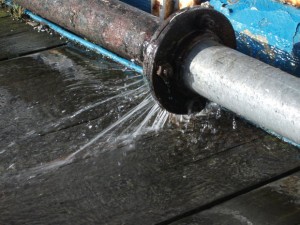Storms in the Southeast Cause Warm Areas to Freeze
Southeastern cities such as Atlanta, Gwinnett and Savannah had a wintry start into 2018. A powerful storm with wind chills and freezing rain left 28 counties in a state of emergency. A vigorous mix of ice, snow, freezing rain was predicted to cause more than just flooding and power outages as schools were canceled and locals were advised to work remote.
Though many residents are used to winter snowfalls, many folks are not prepared for major winter hurricanes and the damages that it can produce. Dangerously low conditions can cause structural damages, hazardous road conditions, flight cancellations and symptoms that were aggravated by the cold such as asthma or emphysema.
The rapid and quick drop in atmospheric pressure causes temperatures to drop well below the 20’s. Be sure take the time to prepare your family, pets and home by following some easy steps.
- Heat tech your home pipes
- Turn off water valves
- Close all doors and windows
- Protect outdoor outlets and unplug outdoor hoses
- Keep spare batteries handy
Water expands as it freezes, and the expansion puts pressure on metal and plastic pipes causing to break or burst. Protect your pipes by adding a layer of protective warmth to it with heat tape or cable, or simply wrap them in about ¼” of newspaper. Think about adding a protective barrier to regularly unheated areas such as basements, garages and kitchen cabinets.
The repercussions of frozen pipes are are messy and costly, often leading to pipe bursts. In addition to adding a protective layer to your pipes, turn off your water supply during the peak of the storm. This will also prevent possible water leaks. There are two ways to turn off your valve, you can try the below your main outdoor faucet or turning the valves attached to the water meter off. The exterior of your property is as important as the interior, be sure to shut off the water to your outdoor faucets and insulate the hose bibs.
 Small acts can save the day. Disconnect exterior hoses from outside water faucet, protect outlets with foam covers, have batteries handy and keep your garage door closed at all times to protect your water heater and water supply line from freezing. Something as small as a repair hole and gaps can be an easy entry way for freezing air to come in. You can take some of the heat tape or cord that was used to protect your pipes to fill gaps and cracks in windows and doors.
Small acts can save the day. Disconnect exterior hoses from outside water faucet, protect outlets with foam covers, have batteries handy and keep your garage door closed at all times to protect your water heater and water supply line from freezing. Something as small as a repair hole and gaps can be an easy entry way for freezing air to come in. You can take some of the heat tape or cord that was used to protect your pipes to fill gaps and cracks in windows and doors.
During wind and rainstorms, the likelihood of power outages increase significantly. To be prepared, check on your emergency kit and be sure to include a first aid kit, batteries, a flashlight, water, and non-perishable foods that would last for at least three days.
The bitter cold and freezing temperatures will drop to a low of 20 degrees and is said to last through the rest of the week. Grab your water repellent coat, scarf, gloves and hat and protect your home to the best of your ability with a few easy steps.



